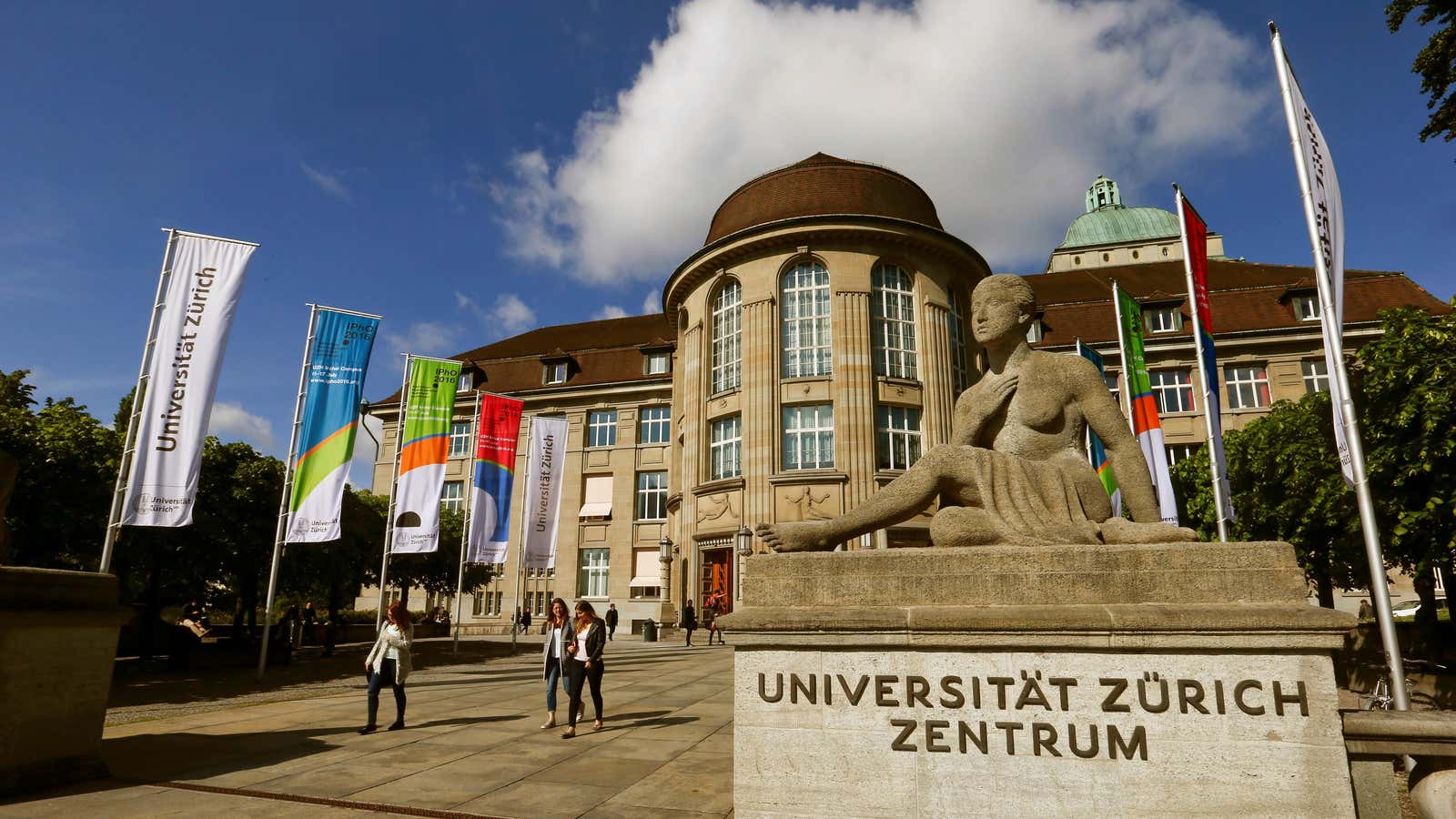There are nine European countries in the top 10 list of nations that are the best at attracting, developing, and retaining talent, a new study found. The US and UK, home to the world’s top 10 universities, did not make the list.
The World Talent Ranking 2018 report was put together by the International Institute for Management Development (IMD), a business school with locations in Switzerland and Singapore. IMD examined 63 countries using results from surveys with over 6,000 company executives as well as economic data. Countries were given an overall score based on how they fared in three categories:
- Investment and development, measuring the resources dedicated to homegrown talent
- Appeal, measuring how well a country does in attracting foreign talent and retaining local talent
- Readiness, examining the quality of skills and jobs available in a country
This is the fifth year in a row that Switzerland and Denmark have ranked number one and two. Norway, Finland, and Sweden also performed strongly. “These countries share high levels of investment in education and quality of life,” Arturo Bris, director of the IMD World Competitiveness Center, said in a press release. The US came in at number 12. (The US has made the top 10 only once, when it ranked number nine in 2014.)
The US scored poorly on investment in the education system and on developing local talent. It did rank second to Switzerland in appeal to international workers.
“Consistently, you find the European countries dominate,” Bris told CNBC. “The top countries benefit from the legacy of good education systems and the ability to develop employees.” In Switzerland, this includes tailoring education to prepare students for the manufacturing, research and development, and technology industries that drive the country.
Key factors threatening the US manufacturing industry include poor perception of manufacturing jobs, and a specialized skills gap—both of which can be improved by investing in education and knowledge-transfer programs. The $1.5 trillion of student-loan debt is a huge burden on the talent pool and the US could invest in initiatives like free college tuition (as is the case in many European countries) to support both international and local talent further.
Bris said that the US might perform better in the future because employers will soon focus on prospective employees that excel at creativity and innovation rather than technical skills. Countries like the US and UK, which have focused on soft skills and the “learning to learn” approach, will stand out, CNBC reports. What’s more, proposed changes to the US H1-B visa this year might make it easier for advanced-degree holders to work in the country.
